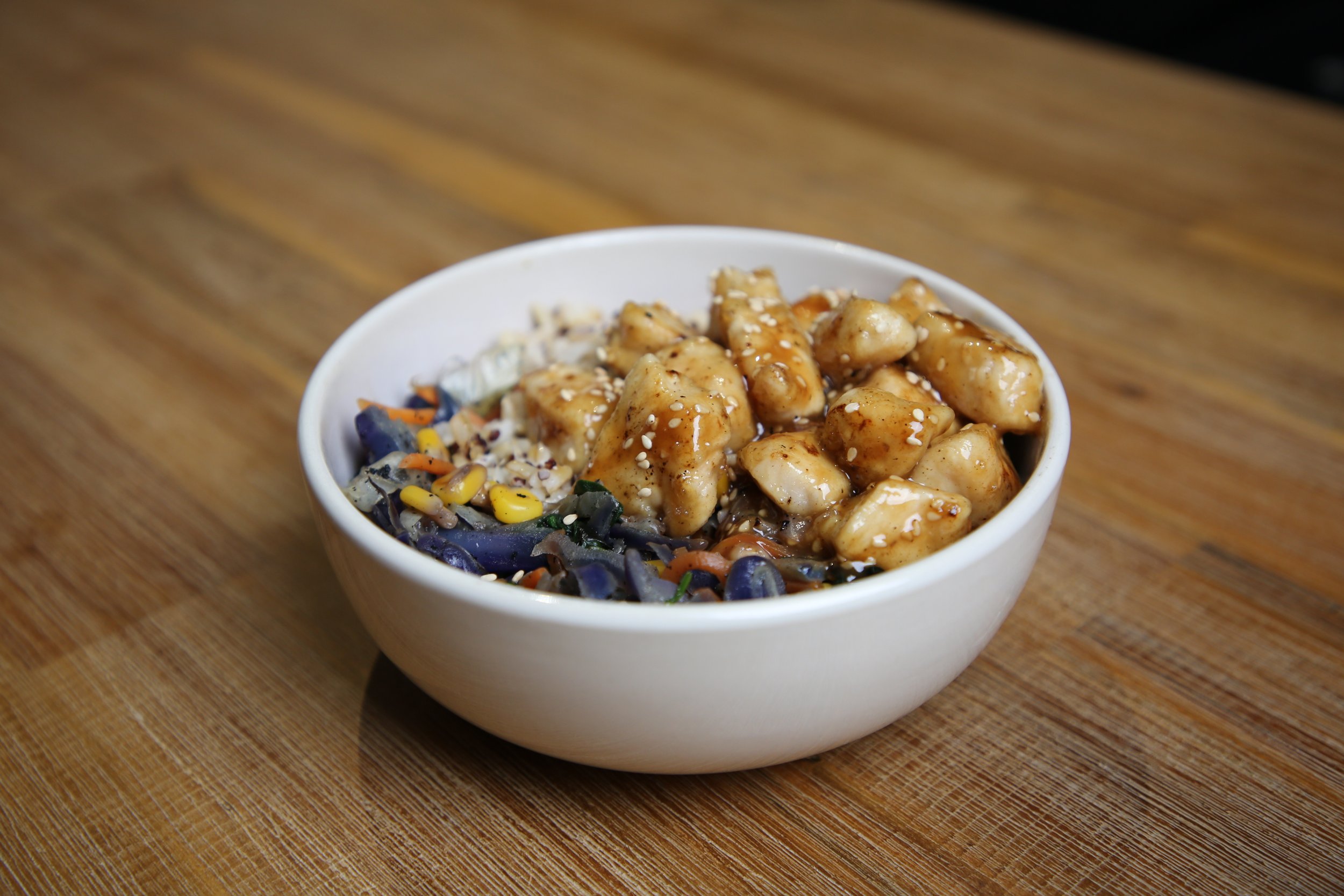Nutrition for Gaining Muscle/Lean Body Mass
Lean body mass gain nutrition 101
No matter you are growing lean body mass to achieve a muscular figure, physique building for your sports or increase your capacity for sports output, muscle gain follows a simple rule with 3 main components:
Stimuli that beyond your current capacity (exercise and training)
Building blocks: primarily protein
Positive energy balance, also known as calorie surplus
When your body expose to a stimuli that challenges your body current capacity (according to your exercise and training plan), your body will try to increase neural recruitment, metabolic adaptation or/and structural change with an aim to increase your exercise capacity. Structural changes include muscle/lean body mass gain. However, to allow and best optimise muscle growth, your body need to be in excess of energy and protein.
No matter whether you are aiming to grow lean body mass to achieve a muscular physique, reaching your physique requirement for sports , or enhancing your athletic capacity, muscle gain follows a simple rule with three main components:
Stimuli that exceed your current capacity (exercise and training).
Adequate supply of building blocks - primarily protein.
Positive energy balance, also known as a calorie surplus.
Why is nutrition important in gaining muscle
When your body is exposed to stimuli that challenge your current capacity, as determined by your exercise and training plan, your body will attempt to increase neural recruitment, metabolic adaptation, and/or structural changes in order to enhance your exercise capacity. These structural changes include muscle and lean body mass gain. However, to facilitate and optimise muscle growth, your body needs to be in an excess of energy and protein.
Some nutrition considerations that you can miss by simply eat more that can hinder your growth:
Failing to match the calorie surplus needed for growth due to increased basal metabolic needs and the rising training load over time.
Consuming too much calorie can lead to excessive fat gain during the process, potentially resulting in no net muscle gain.
Mismatching protein intake with exercise stimuli and suboptimal timing of food consumption can lead to subpar growth rates, hindering already-slow muscle growth progress.
Consuming excess protein is common when trying to reach a protein target, but this can result in an unnecessarily inflexible diet, with a high percentage of energy intake coming from protein. This can become a concern when constructing everyday meals and eating out and accidentally exceeding your calorie goals.
Using inappropriate or unnecessary supplements to meet your goals or failing to derive benefits from a supplement due to misuse.
Difficulty in accounting for competing sports goals, such as maintaining a low body fat percentage or training fasted in specific sessions.
An inflexible diet can lead to nutrition deficiencies and health problems, such as fiber, B complex, magnesium deficiencies, systemic inflammation, increased cardiovascular health risks, acne, and sleep disturbances.
You may develop an unhealthy relationship with food and disordered eating habits, such as binge eating or emotional eating, which can impede your progress and growth.
A proper nutrition plan should be:
Be nutritionally adequate to prevent deficiencies and health risks.
Fuel your body for the work required, accounting for day-to-day variances.
Focus on the method, timing, distribution, and quality of nutrition delivery to maximise lean mass gain potential.
Prioritise your health; sacrificing health for performance often results in lost time due to illnesses and injuries, so as your time to reach goals.
Be enjoyable and flexible to balance with your lifestyle and social life while still achieving your goals.
Be smart about supplements to prevent health risks, contamination, and unnecessary spending.
Why working with a dietitian?
Dietitians are medically-trained nutrition professionals, and the only professional that is qualified to provide individual dietary consultation at the moment (Click here to read about dietitian and nutritionist). Dietitians are trained to provide medical nutrition therapy and one-to-one personalised dietary advice. We take in consideration of one’s lifestyle, dietary habits, preference and goals to tailor our nutrition strategies.
Sports dietitians are further trained in sports nutrition to provide advice to people at any level of activeness to maintain health and wellbeing while achieving their potentials and goals.
The topics dietitians might talk to you about:
Energy surplus and how to achieve it in everyday life
Optimal protein intake and distribution
Role of carbs and fats in gaining lean mass/muscles
Nutrition for health and disease prevention
Nutrition, nutrient supplement and ergogenic aids that suits your health and goals
Safety of ergogenic aid use and common hidden risks in supplements
Practical tips to implement nutrition principles
What does working with Timeless Dietetic dietitian look like?
-
You will be invited to fill in a survey before the consults, including your health history, family history, current situation, goals
For elite athletes: You might be asked to provide a training program, body composition assessment (if available) and food diary
-
Discuss and understand your goals, living situation, lifestyle, potential motivators and barriers.
Perform assessment on health indicators, training schedules and goals, usual dietary intake.
Provide professional feedback on your diet, and identify areas that can be improved to help achieve your goal.
Discuss the most relevant nutrition topic that can help with the current situation and those you are interested in.
In collaboration with you, set small but impactful nutrition goals, homework and challenges.
Recommend what else you can do in the future and a recommended review timeframe if you would like to continue.
Provide you with a tailored nutrition information package to takeaway.
-
Review the effectiveness and practicality of previous goals/homework/challenges.
Review and track any progress indicators.
Reassess any changes in health indicators, training and dietary intake.
Discuss the most relevant nutrition topics and those you are interested in.
In collaboration with you, adjust the previous intervention that did not work well or develop a new strategy.
In collaboration with you, develop new strategies to improve your health and progress.
Provide you with a tailored nutrition information package to takeaway.



































